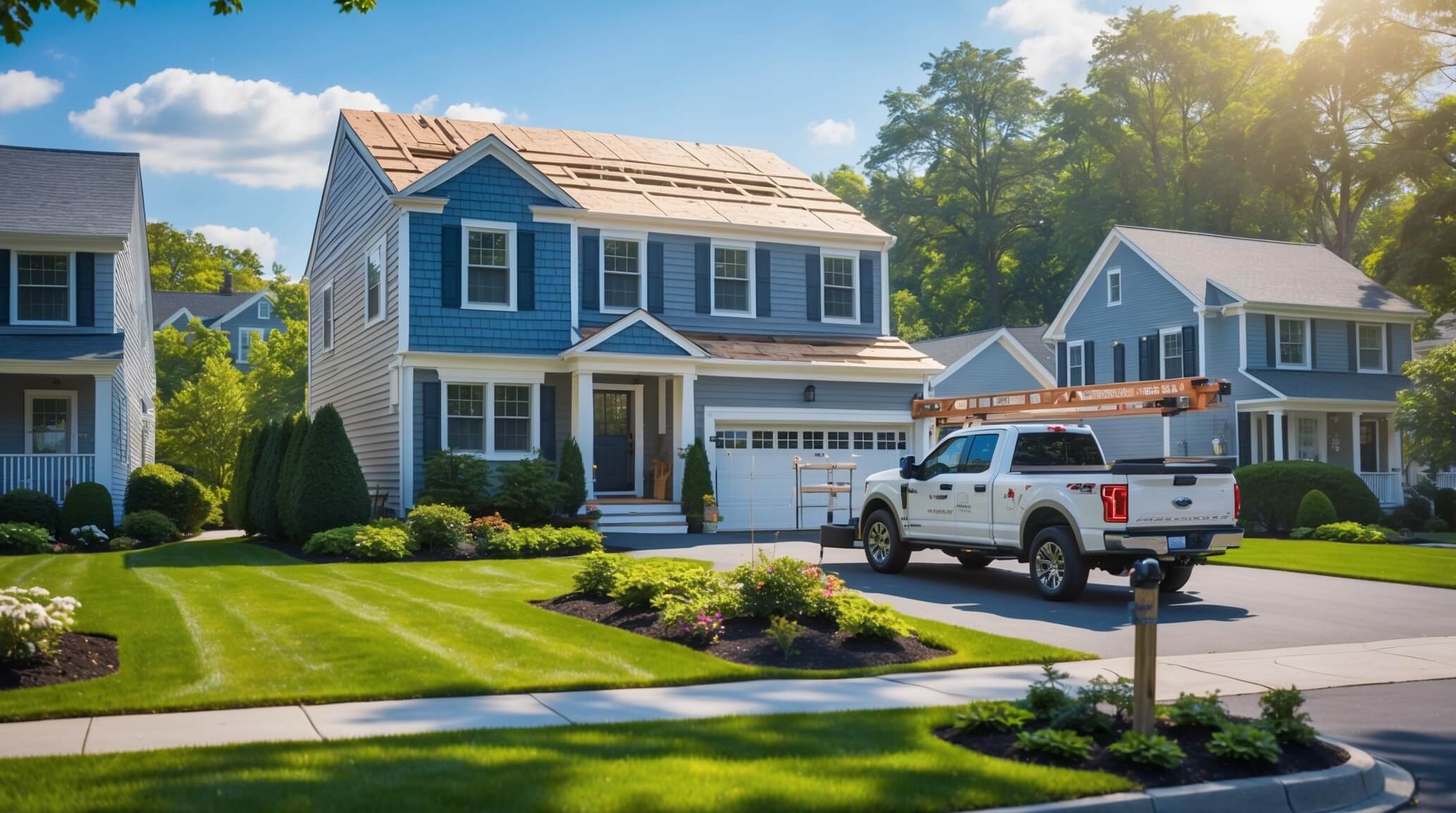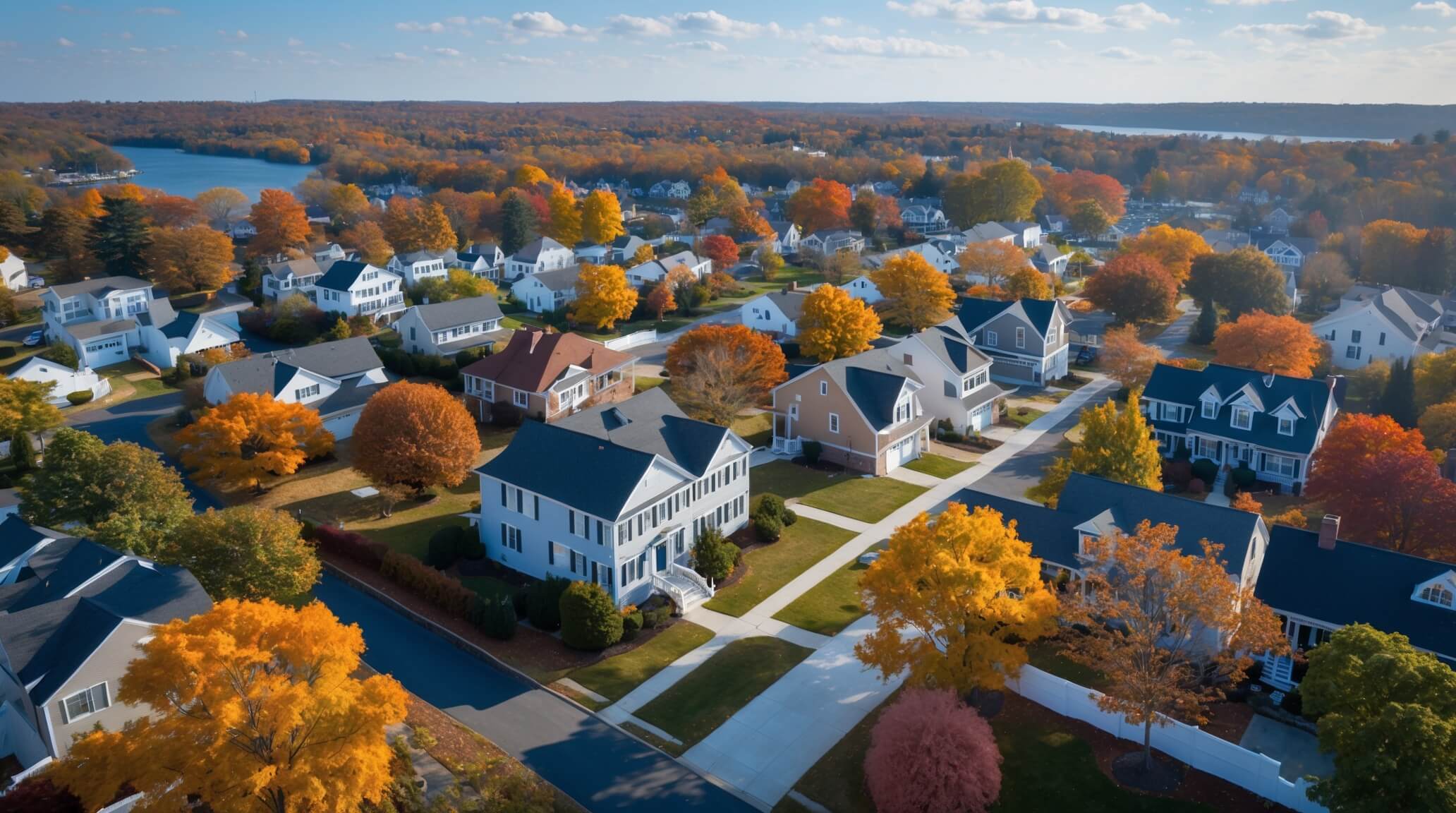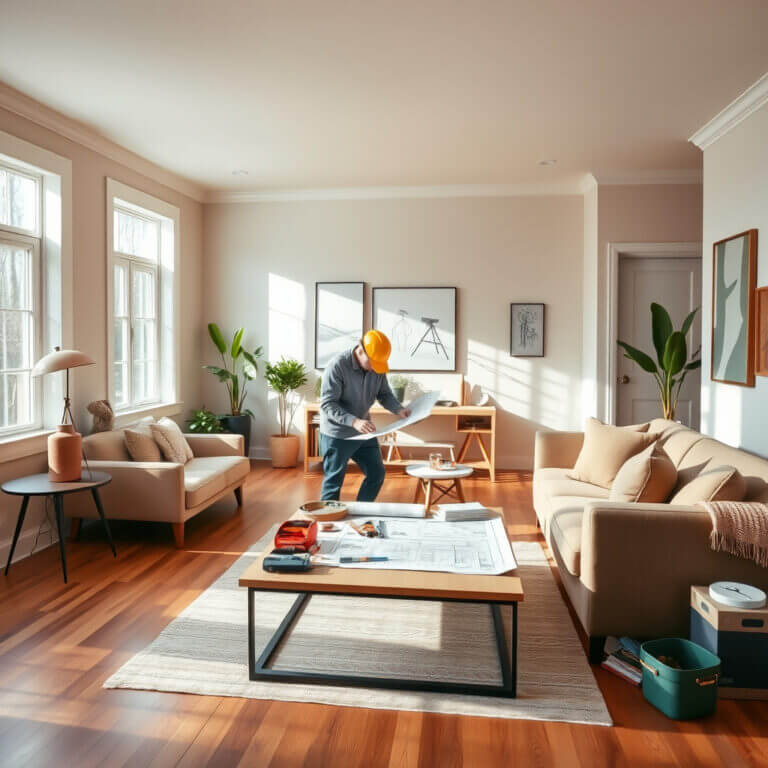If you’re planning a home renovation in the state of Massachusetts, knowing how to get a renovation permit in Massachusetts is not just a technical detail — it’s essential. Whether you’re a homeowner remodeling your kitchen, a contractor starting a new project, or an investor preparing a property flip, you’ll need to go through the proper permit process.
Failing to secure the correct renovation permit can lead to project delays, stop-work orders, code violations, or worse — expensive fines and legal action. In this guide, we’ll walk you through 7 clear steps to help you understand how to get a renovation permit in Massachusetts the right way.
This article was written with one goal: to give Massachusetts residents and professionals real clarity, using information based on the state’s most current construction policies, public records, and local building department guidelines.
Now let’s dive into the step-by-step breakdown.
Confirm Whether You Need a Permit
Before learning how to get a renovation permit in Massachusetts, the first critical step is to determine whether your project actually requires one. The Massachusetts State Building Code (780 CMR) and local municipalities list specific activities that trigger permit requirements.
You typically need a permit if your renovation includes:
- Structural changes (walls, beams, foundation)
- Electrical, plumbing, or HVAC system work
- Roof or siding replacement
- Window or door relocation
- Additions or expansions
- Major kitchen or bathroom remodels
You might not need a permit for:
- Cosmetic updates (painting, flooring, cabinets)
- Minor repairs that don’t affect structure or utilities
To avoid missteps, always check with your local building department. Most Massachusetts towns and cities have permit checklists or flowcharts on their websites, such as Boston’s Inspectional Services Division (ISD) or Worcester’s Building Division.
Gather the Right Documents Before Applying
One of the most overlooked parts of how to get a renovation permit in Massachusetts is document preparation. Submitting an incomplete application is a common reason for delays and rejections.
Typical documents required include:
- Completed permit application form (available on your city or town’s official website)
- Construction drawings or blueprints, stamped if required
- Scope of work clearly describing what the renovation involves
- Licensed contractor information
- Workers’ Compensation Insurance affidavit
- Zoning approval (if applicable)
Each municipality may ask for additional paperwork. For example, Cambridge may require a site plan or a Certificate of Appropriateness if your property is in a historic district. Always check with the local authority.
Submit Your Permit Application to the Right Department
In Massachusetts, permits are issued at the local level, not by the state. That means you must file your application with your city or town’s building department or inspectional services office.
Here’s how to proceed:
- Visit the official municipal website and locate the “Building Department” or “Permits” section
- Download the permit application or complete it through the online portal (if available)
- Pay the application fee (usually based on project cost or square footage)
- Submit your paperwork online, by mail, or in person
A few examples:
Once submitted, your application enters review. Depending on the project size and complexity, the approval process may take anywhere from 3 days to 3 weeks.

Understand Permit Fees and Project Valuation
A key part of how to get a renovation permit in Massachusetts is calculating the correct permit fee, which is typically based on the declared project value or the square footage of the renovation. Most cities have a set formula for this.
For example:
- Boston: Fees are based on the cost of work and permit type. A $50,000 kitchen remodel could have a base permit fee of around $625.
- Worcester: Uses $12 per $1,000 of construction value, with a $50 minimum.
- Cambridge: Charges based on square footage, plus administrative fees.
Always verify these fees on the official site of the municipality where your property is located. Underreporting your project’s value can result in fines or denial of certificate of occupancy.
👉 Source: Massachusetts Permit Fee Guide (Sample – Dedham)
Schedule and Pass Required Inspections
Once your permit is approved and work begins, you must schedule inspections at key stages of construction. This is one of the most critical steps in how to get a renovation permit in Massachusetts and keep it valid.
Typical inspections include:
- Rough inspection (before walls are closed)
- Electrical and plumbing inspections (by licensed inspectors)
- Final inspection (for project sign-off)
Failing to complete inspections — or failing them — can delay your project or prevent final approval. Your local building department will provide a timeline and contact for scheduling.
For example, Springfield’s Inspection Request Form allows homeowners or contractors to book inspections online or by phone.
Work with Licensed Contractors Who Understand Local Code
Massachusetts law requires that most residential renovations be performed by licensed contractors holding a valid Home Improvement Contractor (HIC) registration and, in some cases, a Construction Supervisor License (CSL).
Here’s why this matters for anyone learning how to get a renovation permit in Massachusetts:
- Only licensed professionals can pull permits for many renovation types
- They know how to prepare plans and submit accurate applications
- They are familiar with local code updates and inspection procedures
- Homeowners are protected by the Homeowner Guaranty Fund when hiring registered HICs
You can verify a contractor’s license at the Office of Consumer Affairs and Business Regulation.
Obtain the Certificate of Completion or Occupancy
After final inspections are approved, your local building department will issue a Certificate of Completion (for partial renovations) or Certificate of Occupancy (for new builds or major alterations).
Without this certificate:
- You may not legally use or sell the renovated area
- You could face fines or legal challenges during property transactions
To close the permit:
- Confirm that all inspections have been passed
- Request the final sign-off from the building inspector
- Ensure all fees and documents have been submitted
This final step seals the entire process of how to get a renovation permit in Massachusetts — and provides legal proof that your project was completed safely and in full compliance with state and local law.
Conclusion
Knowing how to get a renovation permit in Massachusetts isn’t just a matter of paperwork — it’s the foundation for a legal, safe, and successful project. Whether you’re renovating a single-family home in Worcester, flipping a multi-unit in Lowell, or adding a new bathroom in Cambridge, the steps are clear: understand what requires a permit, prepare your documents, work with licensed professionals, follow your municipality’s process, and schedule the required inspections.
Permits protect your investment, your safety, and your future property value. Skipping this process can cost far more than the price of doing it right from the start. This guide aimed to give you clarity and control over one of the most important phases of any renovation — the legal and technical groundwork.
So before you swing a hammer, submit that application, and build with confidence — Massachusetts-style.
Planning a renovation and unsure where to begin?
Let us help you navigate how to get a renovation permit in Massachusetts with clarity and confidence.
👉 Contact Builders RD for personalized guidance, city-specific resources, and access to trusted local contractors.
📬 Visit our contact page to ask a question or request a free consultation.
Your project starts with the right information.
Let’s build it right — together.
Do I always need a permit for home renovations in Massachusetts?
Not always. Cosmetic changes typically don’t require one, but structural, electrical, plumbing, and major layout changes almost always do. When in doubt, contact your local building department.
How long does it take to get a renovation permit approved?
It can take 3 to 15 business days for small projects, and up to several weeks for larger renovations, depending on the city and the completeness of your application.
What happens if I renovate without a permit in Massachusetts?
You may face fines, be forced to stop work, undo completed work, or be blocked from selling or refinancing the property until it complies with code.
Can I pull a permit myself as a homeowner?
Yes, in many cases. Massachusetts allows homeowners to act as their own contractor (filing as the responsible party), but you then assume full legal and liability responsibility.
How do I verify a contractor’s license or permit record?
Use the state’s official lookup tool at the Office of Consumer Affairs and Business Regulation.
How much does a permit usually cost?
Fees vary by city and project size, but expect anywhere from $50 to several hundred dollars. Each municipality posts its fee schedule online.
Is it better to hire a turnkey contractor?
Yes. A qualified turnkey contractor manages the entire process — design, permits, construction, and inspections — which reduces stress, delays, and cost overruns.

At Builders RD, our editorial team is made up of construction professionals, researchers, and local content strategists who specialize in home improvement, permitting, and contractor services across Massachusetts. We work closely with industry experts, licensed contractors, and municipal guidelines to deliver accurate, actionable content that helps homeowners, investors, and builders make confident decisions.
Our mission is to simplify the construction process through trustworthy guidance — from permit applications to hiring the right team — so you can build smarter, safer, and with full peace of mind.
— Builders RD Editorial Team






